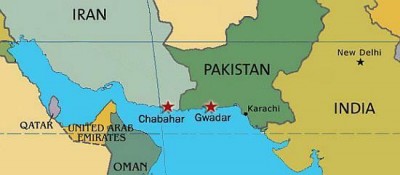Pakistan’s Choice, The US Afghan Campaign: Totally Out-maneuvered by The Taliban

US Afghan Campaign continues to totter along undefined paths towards an as yet undetermined end state. The US is now not the only power dominating the strategic environment in Afghanistan; the Afghan Taliban/Haqqani Network (TTA/HN) have staked competing claims too. The aims, objectives and end states desired by both the main antagonists however remain patently divergent.
The US now seeks peace in the region with the help of Pakistan with KSA, UAE and Qatar in attendance.
US exit strategy is primarily predicated upon an early departure from Afghanistan leaving behind a “friendly” multiparty Afghan Government including representatives from the National Unity Government, (NUG). It would want to retain some influence and oversight in the Afghanistan-Pakistan Region, the South-Central Asian Region and the Greater Middle East Region by maintaining two military bases, one each at Bagram and Shorabak. The TTA/HN strategy on the other hand aims at acquiring sole and total control of Afghanistan post US withdrawal. It has completely sidelined the NUG and wants to represent the Afghan nation all by itself. It wants to deal with the NUG from a position of obvious strength once the US and its allies have departed from Afghanistan.
The TTA/HN has totally out-maneuvered the US in all aspects of the Afghan Campaign, military as well as diplomatic. It has not only fought the US-led foreign forces and the ANDSF to a stalemate on the battlefields but has also forced them to sue for peace. It has wrested the initiative and is negotiating from a clear position of strength in the peace process. It is now dictating its conduct including the location and duration of the parleys, its agenda and its participants, determinedly keeping the NUG out of the loop. The TTA/HN has emerged dominant in Afghanistan and wants to be the sole representatives of the Afghan nation in this decisive phase of US Afghan Campaign. For it, perhaps, Afghan-led, Afghan owned means TTA/HN led and TTA/HN owned! It will not share the spoils of victory, power that is, in the post US period with any one, least of all with those (NUG) that it considers as collaborators of the occupying forces.
Having realised the futility of trying to win a military victory the US is now willing to negotiate, literally wriggle its way out. It wanted Pakistan to bring the TTA/HN to the negotiating table. Pakistan delivered. Now it wants Pakistan to get it to talk to the NUG too. It is like not only bringing the horse to the water but making it drink too – a literal impossibility. That may be the limit of Pakistan’s influence on the TTA/HN which it must respect in this critical stage of the Afghan War. Talking to the NUG is anathema to the TTA/HN and Pakistan must not force them to a decision they do not like and lose its credentials with them in the process.
And that is where the peace process is currently stalled.
The TTA/HN is well positioned to grab “total power” in the post US period. It is least likely to compromise on this advantage. It will not easily give away its ultimate prize for a struggle that has lasted almost two decades. The US may have no option but to accept this and negotiate from a position of weakness. It must give at least a “tentative” date of withdrawal, release some of the TTA/HN leaders it has in its custody and allow the leaders freedom of movement and travel. It may also lay down a time limit for which it desires the two military bases at Bagram and Shorabak. On the other hand, the TTA/HN might declare a ceasefire effective from the day the foreign forces start their egress and declare to start talks with the NUG once 75 % of the foreign forces have left Afghanistan. Furthermore, the US may seek a role for the NUG representatives in the next Afghan Government set up, which must essentially represent all ethnic groups. The new Government must deny safe havens to all international terrorist groups on Afghan territory while snuffing out the myriads of terrorist groups that currently abound there. The US and its western allies must also announce a substantial economic recovery plan, a la Marshall Plan, to make it easy for the TTA/HN to compromise.
In the present strategic environment, the US has literally “maneuvered” itself to a point where it has zero leverage over the TTA/HN. It now wants Pakistan to use its leverage on its behalf to remedy the situation. Pakistan must recognise and seize this opportunity. It must seek a quid pro quo from the US; get the held- up CSF amounts due to it and the resumption of economic and military aid programs and military sales as well, as a prelude to an abiding strategic partnership. The US must also help bring to an end all India-Afghanistan sponsored anti-Pakistan activities from Afghan territories.
Pakistan has to play its cards extremely sensitively and well. Where do the critical fault-lines in this US-Pakistan joint endeavor to bring peace to Afghanistan, lie? Do they both have the same desired end states and the same set of “eventual keepers of Afghanistan” in mind? Or does Pakistan’s desired end state for Afghanistan have a lot more in common with what the TTA/HN desire?
Pakistan’s unambiguous choice will be critical, nay fateful, not only for itself but for Afghanistan and the entire region, too!
*
Note to readers: please click the share buttons above. Forward this article to your email lists. Crosspost on your blog site, internet forums. etc.
Brig. Imran Malik is a retired brigadier.

